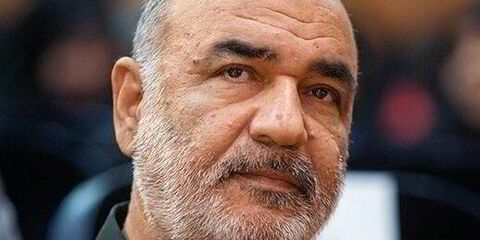Campaigners urged the UK government on Tuesday to open a new front against Russia’s oil trade by targeting fraudulent documents that disguise the true value of shipments.
Ministers will be presented with a list of proposals to intensify the pressure on the Russian shadow fleet including by increasing the heat on shipowners, seafarers and business interests that make the trades work, a fringe meeting at the UK’s ruling Labour Party conference in Liverpool heard on Tuesday.
The new government of Keir Starmer has designated 25 tankers since coming to power in July using legislation introduced during the final hours of the outgoing Conservative administration.
Some of those vessels have returned to limited trading and campaigners called for further action to put the squeeze on the trades.
More than 700 crude and product tankers have moved Russian oil since 2023 with a core of some 45 vessels, according to Anna Vlasyuk of the Kyiv School of Economics.
Under the rules of the G7-backed scheme, Western shipping and insurance services can support Russian shipments only if the oil is hauled below price caps. The price cap scheme, first introduced in December 2022, is aimed at limiting the Kremlin’s profits from fossil fuel sales.
Insurers can demand documents that show that oil has been sold at below the caps — $60 a barrel for crude and $100 or $45 for refined products — but critics of the scheme have long said they can easily be falsified by traders outside of the reach of Western regulators.
Craig Kennedy, a Russia energy and finance expert and associate at Harvard University’s Davis Center, said that the UK could easily improve the scheme by insisting that it would only agree to shipments if they involved traders that were fully accountable to G7 or EU regulators.

“They need to get a piece of paper attesting to the price from a trader who has full accountability before UK, EU or G7 law,” he said.
“That’s the little change that needs to be introduced. If you want to play in Russia, you have to make certain that the pricing for the cargo that you’re getting is given to you by a trader who has real accountability.
“These are going to be the big trading houses that are based in the UK or in Europe, operate there, and want to stay on the right side of the law.”
The rise of the shadow fleet and its shift to non-European ownership and insurance has seen G7 and EU governments turn to sanctioning individual ships to try to affect behaviour.
Ukraine’s KSE Institute, which has tracked the growth of the shadow fleet since the invasion in February 2022, said that 400 ships passed the Strait of Dover in 2023 with Russian oil.
The Danish and Swedish governments have called for greater restrictions on under-insured elderly vessels passing close to its shores but have been wary of intervening to restrict the freedom of navigation.
But Alex Prezanti, a British barrister representing the organisation State Capture, said there may be more opportunities to target vessels on environmental grounds off the British coastline. Vlasyuk called for shipowners and seafarers on the vessels to face criminal investigations.(Copyright)
Read more
- LNG shadow ship hovers off Russia’s eastern supersize FSU
- US tariff action stokes fears Chinese-built ships may be next in White House sights
- Thenamaris and Sea World emerge as buyers in all-Greek tanker resale deals
- Red Sea transits still have strong backing from London market amid Houthi attacks
- Crackdown on Russia oil transfer hotspot extended by Greek navy




